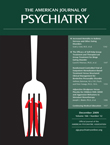A lesson from DSM-IV is that field testing cannot always predict the rates of mental disorders once a diagnostic system enters general use. The most difficult but also most consequential purpose of field trials is to determine how new criteria sets will affect definitions of caseness and rates of diagnosis. Ironically, clearer wording may make diagnoses easier to use but also make them susceptible to overuse—especially in primary care and by patients, families, and teachers. This potential can be amplified by drug company marketing—not just to psychiatrists, but especially to pediatricians, primary care physicians, and now the general public. The risk of an artifactual increase in diagnoses is particularly high for disorders at the boundary of normality, such as mood and anxiety disorders. “Not otherwise specified” categories and dimensional ratings, in which there is no threshold for diagnosis but rather a continuous scale, are at particularly high risk for increased identification of symptoms in otherwise normal people.
How can the DSM-V field trials be designed to avoid a similar surprising false positive problem? Unfortunately, there are no guarantees, but the most important protection is to pick testing sites that generalize best to the real world in which the system will be used. All diagnoses have the inherent problem of having been created by experts who have highly specialized research and clinical experiences for use by clinicians who treat a much less selected, heterogeneous population. Experts worry most about missed cases and distinguishing between similar disorders, while the risk in general use is more likely to be false positives. It is important to avoid using convenience samples in field trials, especially those drawn from the settings familiar to work group members. Instead, field trial sites, evaluators, and samples should be chosen to be as similar as possible to the general settings where the diagnosis will be used. For example, if minor depression is field tested, it would best be done not in psychiatric settings but in primary care settings or with randomly selected samples of the general population. It has been often demonstrated for medical tests—most recently for genetic analyses—that low levels of false positives that seem trivial in a group already known to be ill lead to large numbers of misclassified people in the general population. For example, a misdiagnosis rate of 1% of depression in a psychiatric clinic is not likely to be problematic, but in the general population it would result in the misclassification of several million people.

